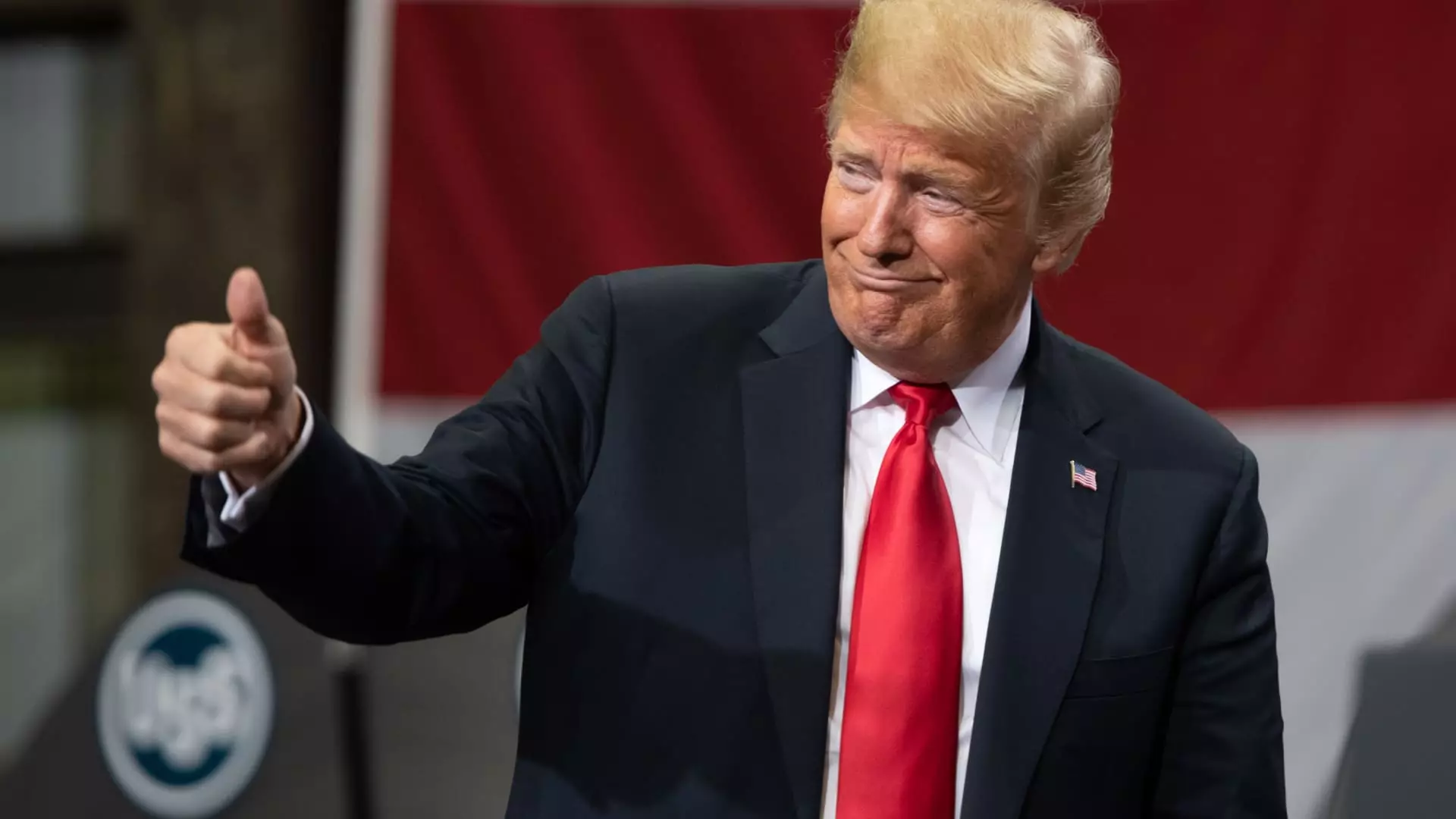In a world where financial markets thrive on stability and predictability, the recent antics of former President Donald Trump serve as a perplexing reminder of how just one tweet — posted in a burst of impulsiveness — can send ripples of chaos across Wall Street. During a pivotal morning in the stock market, when the President advised investors on Truth Social to “buy stocks,” it seemed more a rallying cry for his base than sound financial advice. Unfortunately, this statement carried heavy implications, hinting at a troubling intersection of market forces and political maneuvering.
The Strange Timing of Trump’s Advice
It’s questionable whether Trump’s timing was strategic or purely opportunistic. Although he claimed that “THIS IS A GREAT TIME TO BUY!!!,” one can’t help but wonder about the genuineness of such proclamations. When he tweeted this post, the market was still recovering from the fallout of his previous week’s announcement regarding import tariffs, an action that had understandably caused anxiety among investors. The immediate rebound in stock prices following his tweet feels less like a victory for informed investment and more like a case of selective luck blending with reckless communication.
Investors desperate for insight may have taken this tweet as gospel, fearing they’d miss the proverbial boat if they didn’t act immediately. The dramatic upward plummet of S&P 500 stocks late in the day seemingly validated the President’s call, but it raises ethical questions: Was this an informed prediction, or was it a loophole for market manipulation? In a sector where uncertainty breeds volatility, Trump’s actions compel us to scrutinize the line that separates passionate advocacy for investment from irresponsible rhetoric.
Profits, Perils, and Perceptions
Stocks witnessing a sudden surge after Trump’s proclamation may have netted considerable profits for a few lucky investors, but this snapshot of profitability masks larger worries. For instance, if one had invested $1,000 in the SPDR S&P 500 ETF Trust right at the given time, they could’ve seen it swell into $1,110 during the session’s peak — an impressive 11% increase. However, let’s not gloss over the context: this fleeting spike came on the heels of a significant market downturn triggered by Trump’s own initiatives.
This presents a contrasting narrative. Several Wall Street investors are now questioning the sustainability of such gains. The financial ecosystem thrives on confidence; to have a political figure—especially one with a historically cavalier view of economic policy—play arbiter of financial viability paints a distressing picture. Can this cavalcade of highs be trusted, or is it merely a flash in the pan driven by whims detached from fundamental analysis?
Trump Media: A Portent of Personal Interest?
One must also confront the implications of Trump’s involvement with his media company during such political theatrics. When he cleverly referenced “DJT” in his post, he connected his advice to his own financial ventures, flinging open the door to accusations of self-serving interests. Critics could argue this intertwining of interests constitutes a blatant conflict, reflecting a president whose financial motivations could take precedence over the wellbeing of his constituents and the economy at large.
The audacity of the former President to posture as a financial guru—given his problematic track record—should elicit concern from rational thinkers. Is this merely a symptom of political celebrity culture, or is it symptomatic of a larger systemic issue with the credence given to powerful individuals in the markets?
The Echoes of Social Media Mania
With platforms like Truth Social echoing his proclamations, these moments are further exacerbated by democratized access to information through social media. Take Reddit’s WallStreetBets forum, for instance. After Trump’s tweet, excitement fluttered through the threads, with individuals feeling vindicated or, conversely, bemoaning the market manipulation they perceived. The same community that rallied behind a seemingly unorthodox approach to investments now finds itself at the intersection of emotional response and financial reality.
This dynamic of social media-induced hysteria coupled with political intervention distorts conventional market functions. If traders are swayed more by tweets than fundamental evaluations of companies, we reach a precipice where market integrity is compromised.
Markets are not designed for impulsive decision-making but rather for calculated wins grounded in empirical analysis. The spectacle of Trump’s intervention illustrates what can occur when impulsive decisions outpace sound judgment, revealing profound implications for both investors and the economy—an affair where the stakes are crucially high.

